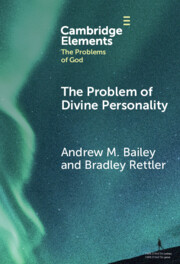Element contents
The Problem of Divine Personality
Published online by Cambridge University Press: 13 December 2024
Summary
Keywords
Information
- Type
- Element
- Information
- Series: Elements in the Problems of GodOnline ISBN: 9781009269254Publisher: Cambridge University PressPrint publication: 30 January 2025
